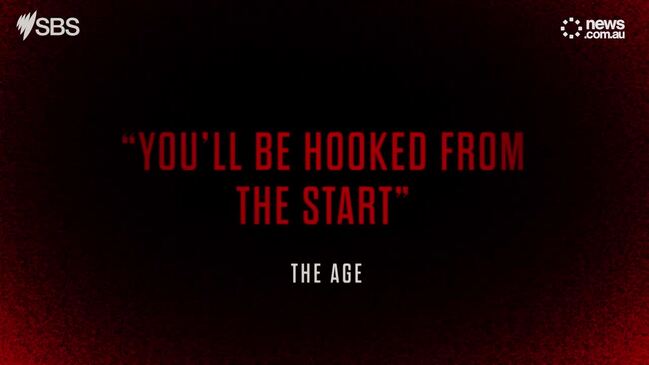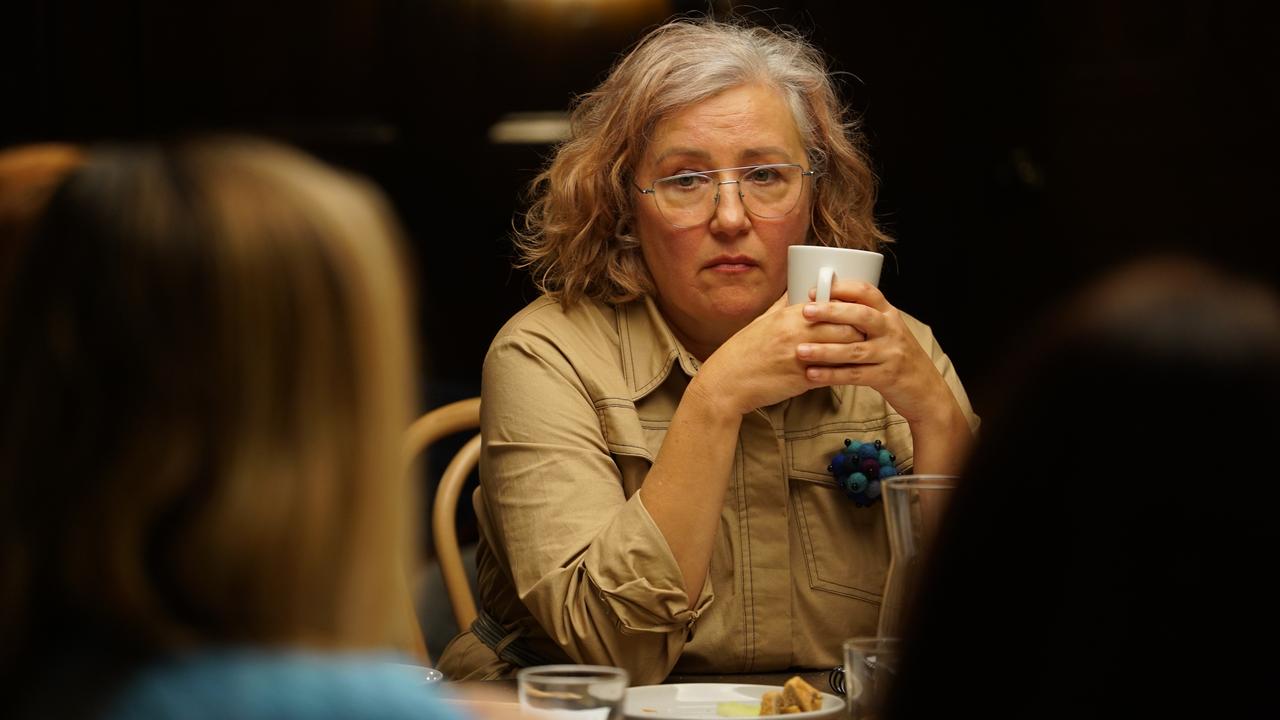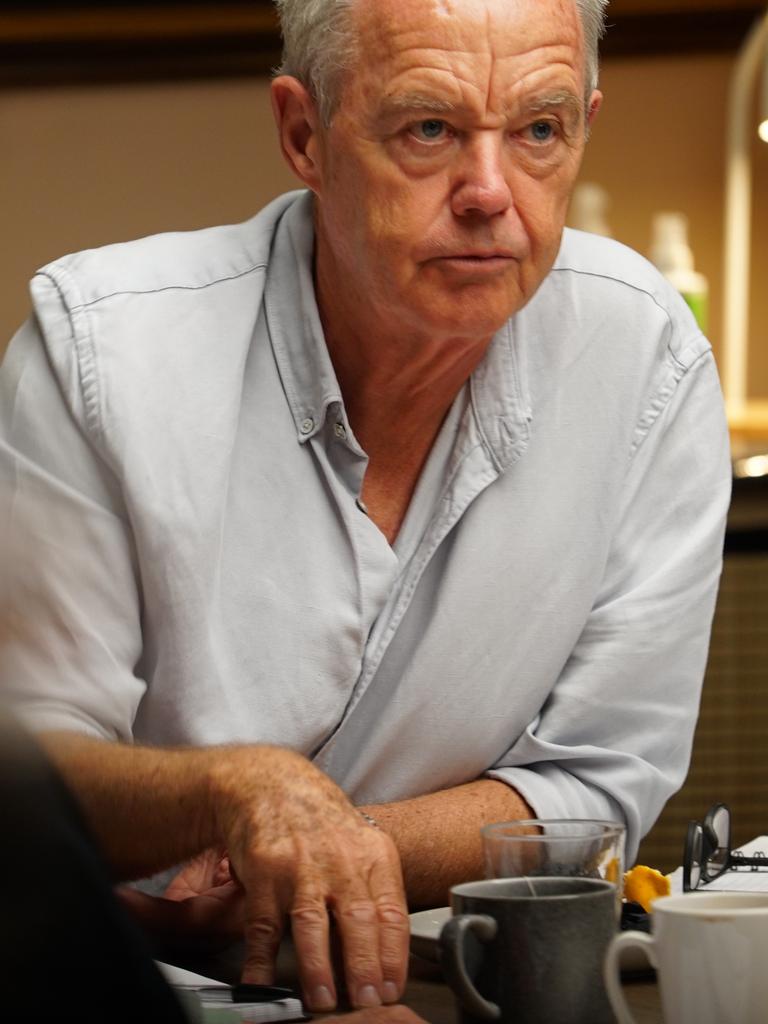Court outburst that divided jury in ‘The Jury: Death on the Staircase’
Two words from a witness caused a defence barrister to fly off the handle, leaving the jury in the manslaughter trial divided over the outburst.

Reality
Don't miss out on the headlines from Reality. Followed categories will be added to My News.
The defence barrister in the manslaughter trial of a man accused of causing the death of his partner has been labelled “terrifying” and “belligerent” after an outburst that divided the jury.
A new SBS true crime series The Jury: Death on the Staircase re-enacts a real trial, word-for-word, for a jury of 12 volunteers in an Australia-first experiment aimed at discovering just how reliably we can expect jury-led trials to find justice.
The identities of the people involved in the original trial have been hidden for the purpose of the experiment, so as not to sway the jury (or audience) in any direction.
In episode two, which aired last night, the jury heard testimony from a woman who lived next door to the accused and his partner, claiming she’d heard “pots and pans clattering”, followed by what she believed to be the deceased “singing” for a moment, then screaming and crying from the accused.
Read our recap of The Jury: Death on the Staircase episode one

When asked by the prosecution to describe the screaming, the witness said it sounded like “a temper tantrum”.
When the time came for her to be cross-examined a few moments later, the defence barrister (whose name has been changed, for the purposes of the show, to Howard Benedetti) appears to lose his cool.
“Where, in previous statements, have you ever told anyone that Mr Yang’s* (the accused) crying was a temper tantrum?!” he continues, pitch rising in crescendo.
In the jury box, several members react with shock.
“Is that a question?” the witness asks timidly.
“Yes,” spits Mr Benedetti, cutting her off before she has time to respond, “I’m waiting!”
“I-I don’t know what the question is,” finishes the neighbour of the accused.
“Where have you ever told anyone that his crying was like a temper tantrum?!” the lawyer repeats.
In response to an objection from the prosecution regarding the tone of the defence’s questioning, the judge is forced to intervene.
“I appreciate your question, Mr Benedetti,” she begins. “But please - you do not raise your voice like that.”
Back in the deliberation room, the discussion is focused squarely on the defence barrister’s behaviour, rather than on any evidence heard.
“A lot of these behaviours, they are aggressive and archaic,” says one jury member, Anya, a sex therapist who has openly admitted she often leans toward believing the accused.
“That defence lawyer is something else,” claims another. “He really loses his cool!”
While some members of the jury leap to argue in favour of the defence lawyer’s aggressive style, claiming he was simply doing his job, others describe him as “belligerent” and “intimidating”.
Interestingly, opinions on whether or not his behaviour was acceptable are split down gender lines, with several women expressing distaste or offence at the lawyer’s behaviour, and the male members of the jury more likely to write it off as “theatrics”.
It raises a crucial question central to the credibility of jury trials: does the jury’s opinion of the lawyer influence its decision?


Some research suggests the likability (or lack thereof) of an expert witness in criminal trials can influence how likely a jury is to believe their testimony. Another survey found juries were more likely to find in favour of a lawyer who was more aggressive, even though a lawyer’s level of aggression has nothing to do with the facts of the case, or the evidence heard.
While expert concerns about the validity of jury trials as a method of delivering justice are nothing new, the SBS experiment lays this bare in disturbing detail, as we get a front-row seat not only to the deliberation room conversations, but are able to experience the prejudice in our own reactions as we observe.
Two episodes in, with three to go until the verdict is revealed - as well as whether or not this fake jury will reach the same conclusion as the one involved in the original case - the overarching feeling is best described by one of the jury members, former-prison guard Craig.
“Everyone’s getting a bit off track I reckon,” he deadpans into the camera.
“It would be good if we could all stick to the facts.”
* names, dates, location and images have been changed to protect identities in the original trial.
The Jury: Death on the Staircase. Stream free now on SBS On Demand
Originally published as Court outburst that divided jury in ‘The Jury: Death on the Staircase’






